FORT RUCKER Ala. -- After calling Fort Rucker home for nearly 40 years, B Company, 46th Engineer Battalion's "Bravo Beast" Soldiers said goodbye Feb. 10 during a deactivation ceremony at the U.S. Army Aviation Museum.
The deactivation was part of Army-wide changes among engineer battalions and brigades to reorganize and rename many units, said Capt. Christopher Beal as he relinquished his command exactly two years after taking over the company.
B Co. was the only active-duty engineer unit between Fort Polk, La., and Fort Benning, Ga., Beal said. Tasks requiring engineering expertise will now be passed on to remaining units or civilian contractors, he said.
The company is being re-stationed to Fort Polk, and individual Soldiers will be stationed at various locations, depending on Army needs.
The engineers could be counted on to complete tasks quickly, whether the jobs fell under their traditional duties or not, Beal said. Their willingness to learn and expand their skill sets was what set his Soldiers apart.
"Since our guys have been in B Co., they've definitely experienced five to 10 levels above what they're supposed to be doing, and even above what the Army is supposed to be doing," he said. "They can now take that training, and also the real missions we had in Iraq, and share that with their fellow Soldiers when they go to other units. The missions they've had allowed them to excel beyond their peers because they've been exposed to a lot more."
"(The engineers) have been an integral part of the success of Army Aviation and the installation mission," said Lt. Col. Shawn Prickett, commander for 1st Battalion, 13th Aviation Regiment, the unit B Co. fell under here. "If you look anywhere around Fort Rucker, there's something they've touched. Off Fort Rucker, people don't realize the contributions they've made to the community, including flood relief, and recently, more than 4,500 hours of volunteer service in local communities. The contributions of the organization are outstanding."
The battalion was originally formed as the 46th Engineer Railway Maintenance-of-way Battalion at Camp Sheridan, Ala., in December 1917. The unit fought in both world wars, more than a dozen Vietnam campaigns, Desert Storm/Desert Shield and Operation Iraqi Freedom, said Capt. Sam Jefferson, a D Company, 1st Battalion, 145th Aviation Regiment flight school student assisting with the preservation of the unit's history.
The unit was one of the installation's largest since it was stationed here in November 1971. The company remained at Fort Rucker even after the battalion relocated to Fort Polk about 15 years ago.
During their time here, the engineers provided medical staff, fuel transport, constructed many Lake Tholocco facilities and maintained painting Sgt. Ted E. Bear near the Daleville gate until warrant officer candidates assumed the responsibility, said Jefferson.
Engineers' efforts have not gone unnoticed, however. The company was recognized last October as the best active-duty engineer unit in the continental United States as recipients of the U.S. Army Forces Command Engineer Awards Competition 2008 Itschner Award, Beal said.
As they leave Alabama, Soldiers take many lessons learned with them. Fort Rucker was Pfc. Gary McFadden's first military duty station and said his experience here set his expectations for life in the Army. He said the unit's tough standards of excellence challenged him to do his best work.
"I liked it as a first unit. They liked everything to the 'T,'" said the heavy equipment operator.
Spc. Samuel Voss, a carpentry and masonry specialist, agreed. "It was a disciplined unit with high standards," he said.
The unit's long history here evokes nostalgia and Voss said he believes the engineers will be missed.
The unit's diversity was what Staff Sgt. Mario Hawyood, a platoon sergeant, said he appreciated during his stint here the most. "It's like a melting pot. You get a taste of the whole Army," he said.
As they go their separate ways, B Co. Soldiers hope they will never be forgotten. "Our success is due to blood, sweat and tears," Beal said Wednesday. "We've made an everlasting footprint (here)."
Addressing his Soldiers, he challenged them to continue working hard. "You are the best of the best," Beal said. "Continue to sharpen your skills. Your next mission is waiting."
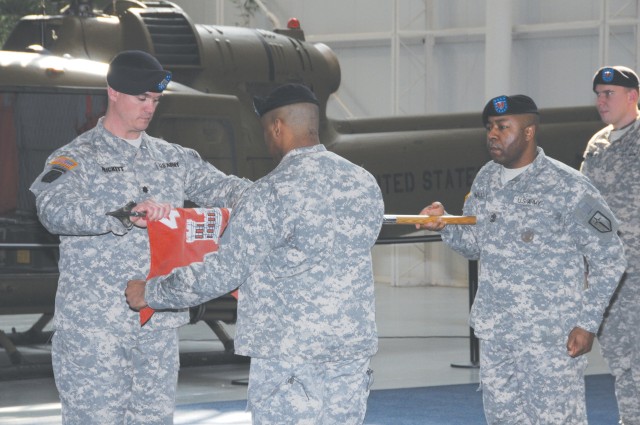
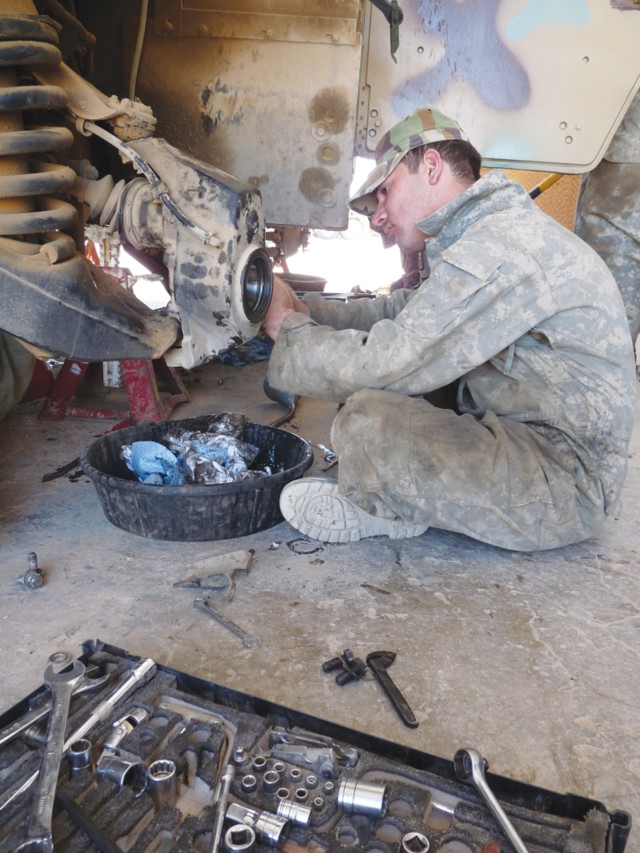
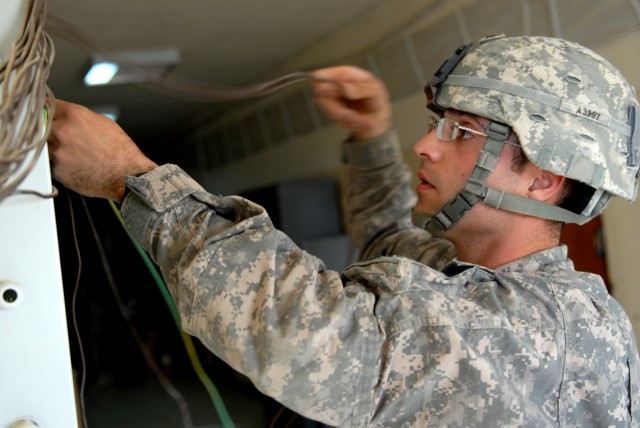
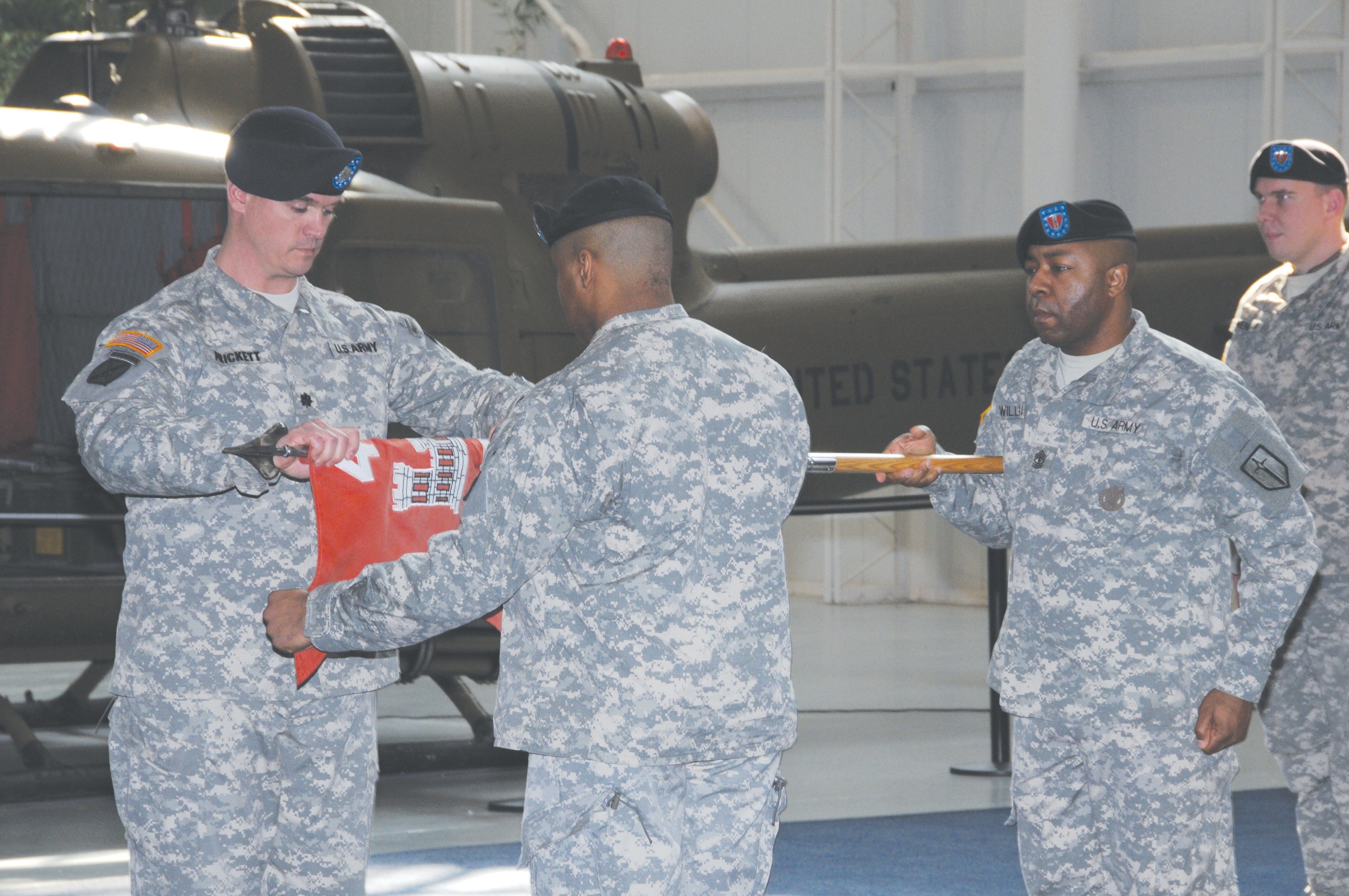
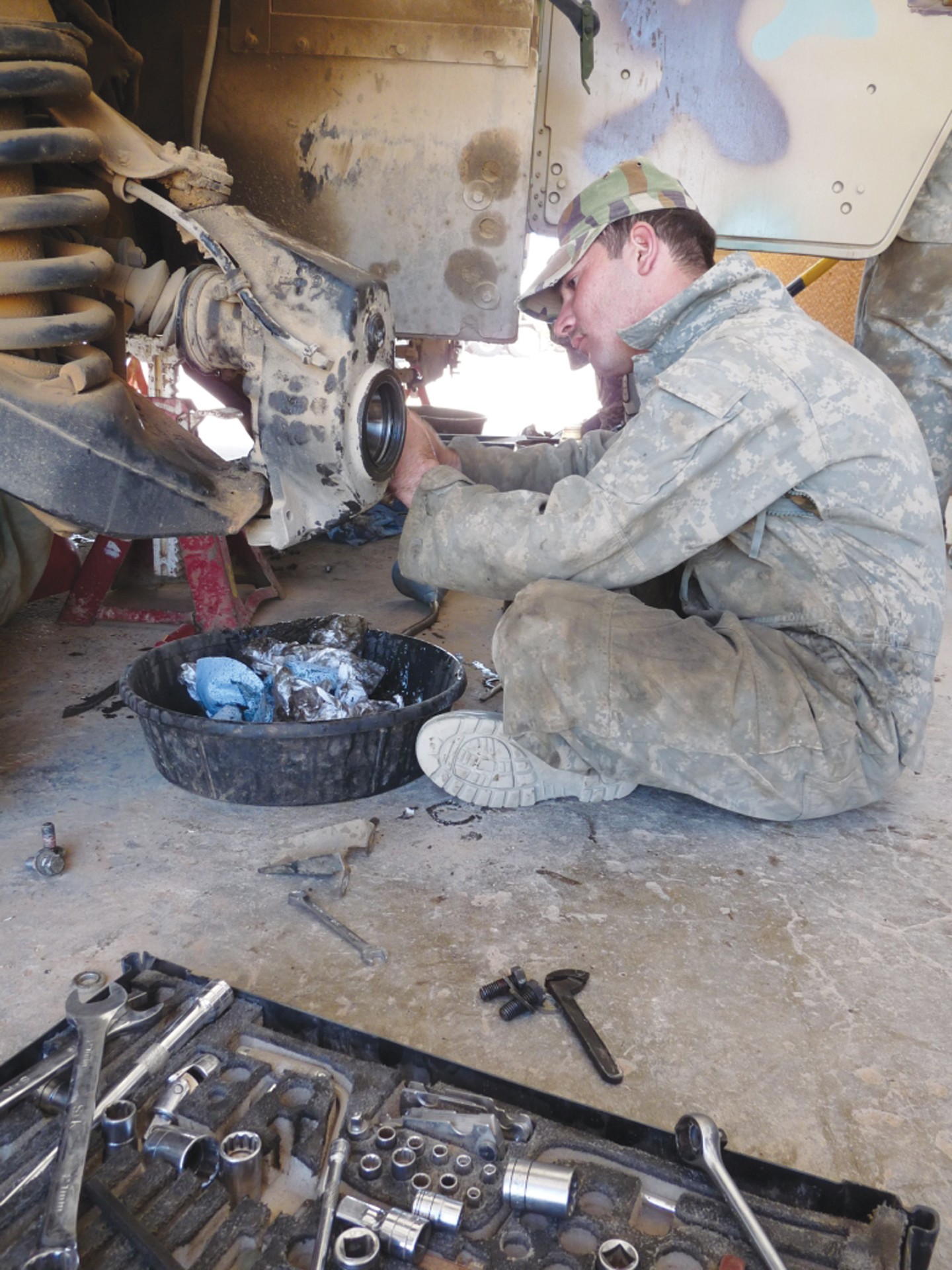
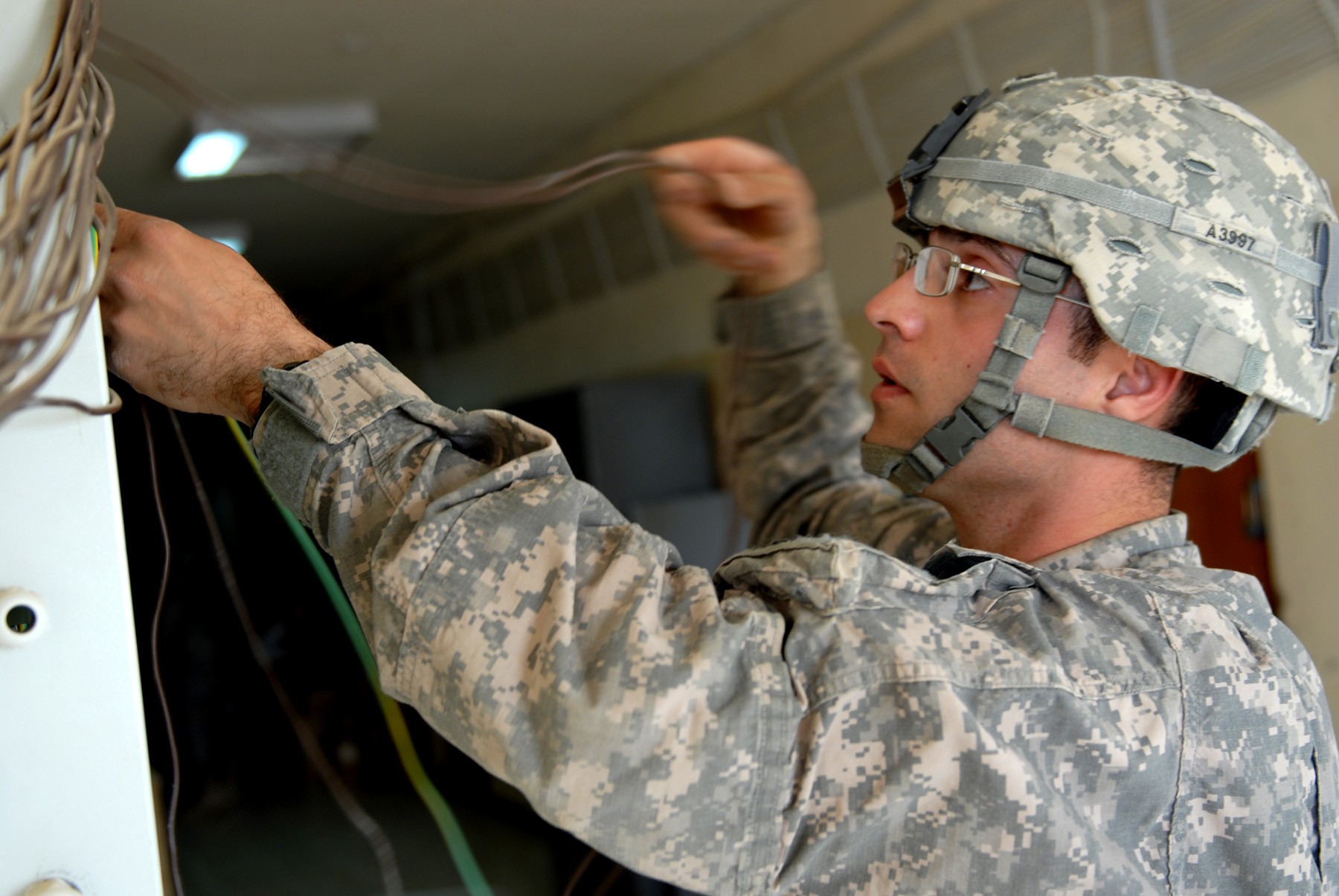
Social Sharing